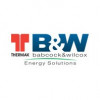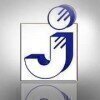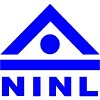Control Room Engineer
20+ Control Room Engineer Interview Questions and Answers

Asked in Thermax Limited

Q. What percentage setting is used for the safety valve?
The percentage setting of a line safety valve depends on the specific system and its requirements.
The percentage setting is determined by the pressure drop across the valve and the required flow rate.
Typically, line safety valves are set between 10-20% above the system's operating pressure.
However, this can vary depending on the specific system and its requirements.
It is important to ensure that the valve is set correctly to prevent overpressure and potential safety hazards.


Q. Explain about steam,water, flue gas,ash handling, Fuel handling system?? What is SSC AND SFC? what is meaning of Boiler,type of Boiler?? Specification of Boiler and Turbine?? DCS system of automation? WHAT is F...
read moreThe Control Room Engineer is expected to have knowledge about steam, water, flue gas, ash handling, fuel handling system, boiler, turbine, DCS system of automation, FCV, feed contact stations, and three or single element system.
Steam is used to generate power in a power plant.
Water is used as a coolant in the condenser.
Flue gas is the exhaust gas from the combustion process.
Ash handling system is used to handle the ash generated from the combustion process.
Fuel handling syste...read more
Control Room Engineer Interview Questions and Answers for Freshers

Asked in Thermax Limited

Q. What type of oil is used in turbines?
The type of oil used in turbines is typically turbine oil.
Turbine oil is specifically designed to meet the lubrication requirements of turbines.
It has excellent thermal stability and oxidation resistance.
Turbine oil helps reduce friction and wear in the turbine's moving parts.
It also provides cooling and helps remove contaminants from the system.
Different types of turbine oils are available, such as mineral-based, synthetic, and bio-based oils.


Q. What are the basics of a boiler and its purpose in industrial usage?
A boiler is a closed vessel that generates steam by heating water. It is used in various industries for heating and power generation.
Boilers are used in industries such as power generation, chemical processing, and food and beverage production.
The basic purpose of a boiler is to convert water into steam, which can be used for heating, power generation, or other industrial processes.
Boilers work by heating water to its boiling point, which produces steam that is then used for ...read more

Asked in Thermax Limited

Q. How many types of tube materials are there?
There are several types of tube materials used in various industries.
Common tube materials include steel, copper, aluminum, and plastic.
Steel tubes are often used in construction and industrial applications due to their strength and durability.
Copper tubes are commonly used in plumbing and HVAC systems for their excellent heat transfer properties.
Aluminum tubes are lightweight and corrosion-resistant, making them suitable for applications in the automotive and aerospace indus...read more

Asked in Thermax Limited

Q. What type of turbine did you work with in your previous company?
The type of turbine used in my past company was a gas turbine.
Gas turbine was used in my past company.
Gas turbines are commonly used in power generation and industrial applications.
Gas turbines operate by burning fuel to generate high-pressure gas, which then drives a turbine to produce electricity or mechanical power.
Control Room Engineer Jobs



Asked in Thermax Limited

Q. What type of boiler did you use in your previous company?
The type of boiler in my past company was a high-pressure steam boiler.
The boiler in my past company was a high-pressure steam boiler.
It was used to generate steam for various industrial processes.
The boiler had a capacity of 10,000 pounds of steam per hour.
It was equipped with safety features such as pressure relief valves and temperature controls.
Regular maintenance and inspections were conducted to ensure its safe and efficient operation.

Asked in Thermax Limited

Q. In a back pressure turbine, if the inlet flow is 40 TPH but the outlet flow is 37 TPH, then what?
The back pressure turbine is experiencing a flow imbalance between the inlet and outlet, resulting in a lower outlet flow than the inlet flow.
Possible causes could include a restriction in the turbine outlet, leakage in the system, or incorrect measurement of flow rates.
Check for any blockages or obstructions in the turbine outlet that may be causing the flow imbalance.
Verify the accuracy of the flow measurement devices to ensure correct readings are being obtained.
Share interview questions and help millions of jobseekers 🌟


Asked in Thermax Limited

Q. What was the working pressure of steam in your past company?
I have experience working with steam in my past company.
Operated and maintained steam control systems
Monitored steam pressure and temperature
Performed regular inspections and maintenance on steam equipment
Troubleshooted and resolved steam-related issues
Ensured compliance with safety regulations and protocols

Asked in Thermax Limited

Q. How many tons of flow does the attemperator flow?
The question is asking about the tonnage flow rate of the attemper flow.
The tonnage flow rate refers to the amount of material or substance flowing through a system per unit of time.
The attemper flow is a term used in control room engineering to describe the flow of a cooling medium, such as water, to regulate temperature.
To answer the question, specific data on the attemper flow rate in tons would be required.


Q. How does a fuel handling system work?
Fuel handling system manages the storage, transfer, and distribution of fuel to the power plant.
Fuel is stored in large tanks and transported to the power plant through pipelines.
The fuel is then transferred to the boiler where it is burned to produce steam.
The steam is then used to turn the turbines which generate electricity.
The system also includes safety measures to prevent accidents and ensure proper functioning.
Regular maintenance and inspections are necessary to ensure...read more

Asked in Thermax Limited

Q. Emergencies You face in a Thermal power plant
Emergencies in a thermal power plant can include fires, equipment failures, and electrical faults.
Fires can occur due to fuel leaks or electrical malfunctions.
Equipment failures can lead to shutdowns or accidents.
Electrical faults can cause power outages or damage to equipment.
Other emergencies may include steam leaks, chemical spills, or worker injuries.

Asked in Visaka Industries

Q. What are the different types of work permits?
There are various types of work permits depending on the country and purpose of employment.
Temporary work permits
Permanent work permits
Seasonal work permits
Student work permits
Intra-company transfer work permits
Skilled worker permits
Business visit permits

Asked in Thermax Limited

Q. pH value in feed pump and Boiler.
pH value is critical in feed pump and boiler to maintain water quality and prevent corrosion.
pH value in feed pump should be between 7.5 to 9.5 to prevent corrosion and scaling
pH value in boiler should be between 10.5 to 12.0 to prevent acidic corrosion
pH value can be controlled by adding chemicals like sodium hydroxide or sulfuric acid
Regular monitoring and adjustment of pH value is necessary to ensure efficient operation and prevent damage

Asked in Thermax Limited

Q. Boiler light up procedure .
The boiler light up procedure is the process of starting and igniting a boiler to generate steam.
Ensure all safety measures are in place before starting the procedure.
Open the boiler's fuel and air supply valves.
Purge the boiler of any remaining gases.
Ignite the pilot burner or spark igniter.
Monitor the flame and adjust fuel and air flow as needed.
Gradually increase the boiler's load and steam pressure.
Perform necessary checks and tests to ensure proper functioning.
Continue m...read more

Asked in Jindal Saw

Q. Protection and interlock of Boiler and Turbine
Boiler and turbine protection involves safety systems to prevent damage and ensure operational integrity.
Safety Valves: Prevent overpressure in the boiler by releasing steam.
Low Water Level Cutoff: Shuts down the boiler if water levels drop too low.
High Temperature Interlock: Stops fuel supply if temperature exceeds safe limits.
Turbine Overspeed Protection: Engages brakes if turbine speed exceeds design limits.
Emergency Shutdown Systems: Automatically isolate boiler and turbi...read more

Asked in Thermax Limited

Q. What is the purpose of a desuperheating line?
Desuperheating lines are used to reduce the temperature of superheated steam or gas in various industrial processes.
They help in maintaining optimal operating temperatures in systems like turbines.
Desuperheating is crucial in power plants to improve efficiency and prevent damage.
For example, in a steam turbine, desuperheating ensures steam enters at the correct temperature.
They can utilize water sprays or heat exchangers to achieve the desired temperature reduction.

Asked in Thermax Limited

Q. Types of tubes mstterls
Types of tubes materials
There are various materials used for tubes, including metals, plastics, and ceramics.
Metal tubes are commonly made from stainless steel, copper, or aluminum.
Plastic tubes can be made from materials like PVC, polyethylene, or polypropylene.
Ceramic tubes are often used in high-temperature applications and can be made from materials like alumina or zirconia.
The choice of tube material depends on factors such as the intended application, temperature, press...read more


Q. Turbine specifications?
Turbine specifications refer to the technical details of the turbine used in power generation.
Turbine specifications include the type of turbine, its capacity, efficiency, and operating conditions.
The type of turbine can be either steam or gas turbine.
Capacity refers to the amount of power the turbine can generate.
Efficiency is the ratio of the energy output to the energy input.
Operating conditions include the temperature, pressure, and speed at which the turbine operates.

Asked in Thermax Limited

Q. Interlocking of boiler
Interlocking of boiler is a safety mechanism that prevents unsafe conditions in the boiler.
Interlocking ensures that all safety devices are in place and functioning properly before the boiler can start.
It also prevents the boiler from starting if any of the safety devices fail or malfunction.
Interlocking can be achieved through electrical or mechanical means.
Examples of interlocking devices include pressure switches, temperature sensors, and flow switches.
Interlocking is an i...read more

Asked in Thermax Limited

Q. How do you handle turbine emergencies?
Emergency handling of turbine involves immediate shutdown and isolation of the affected equipment.
Initiate emergency shutdown procedure
Isolate the affected equipment
Notify relevant personnel
Investigate the cause of the emergency
Implement corrective actions
Resume normal operations only after ensuring safety
Regularly conduct emergency drills to ensure preparedness

Asked in Thermax Limited

Q. What is the turbine rolling procedure?
Turbine rolling procedure is a process of slowly rotating the turbine to check for any abnormalities before starting it.
The turbine is rotated at a slow speed to check for any vibrations or unusual noises.
The rolling procedure is done to ensure the turbine is in good condition before starting it.
The procedure is usually done by the control room engineer or the turbine operator.
If any abnormalities are detected during the rolling procedure, the turbine is shut down and mainten...read more
Interview Questions of Similar Designations
Interview Experiences of Popular Companies








Reviews
Interviews
Salaries
Users

















